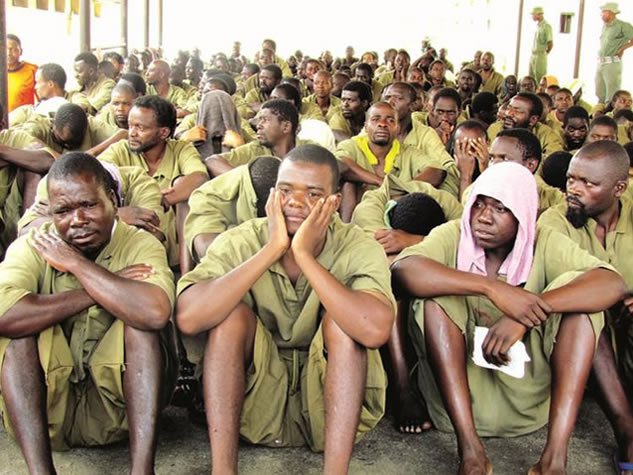‘Zim prison system a national disgrace’
By Blessings Mashaya

In its latest annual report for the year 2016 which was tabled in the National Assembly by Justice, Legal and Parliamentary Affairs minister Happyton Bonyongwe on Tuesday, the constitutional rights body lists a litany of such horrors, with prisoners failing to access running water, subjected to a daily dose of poor diet and grappling with critical shortages of drugs.
The ZHRC monitored prisons in nine provinces of Zimbabwe.
“The main challenges faced by prisons in Zimbabwe relate to financial constraints which affected the prisons’ capability to cater for adequate food, bedding, clothing, sanitation and drugs.
“These acute resource shortages were a result of poor financial support provided to Zimbabwe Prisons and Correctional Services (ZPCS). The low quality of food was a challenge which was cross-cutting in all prisons monitored in 2016. Both prisoners and prison officers confirmed that the diet is unbalanced, mainly composed of starch and vegetables with the exclusion of proteins and other essential nutrients. Foods containers used for the serving of the food at most prisons were worn-out and unhygienic.
“For instance, at Mutimurefu Farm Prison, the containers were made of plastic which is not suitable for serving hot food. These containers were cracked and some of the food was sipping out.”
According to the report, most prisoners wear worn-out uniforms.
“In terms of access to running water, the situation is different from one prison to the other. Prisons such as Karoi, Shurugwi and Mutare faced serious shortages of running water and there was no provision of adequate tanks to store reserved water. Prisons such as Beitbridge, Hurungwe and Kariba among others indicated that they had constant running water supply and enough tanks to store water.
“The clothing, bedding and sanitation situation left a lot to be desired. Uniform shortages were a cause for concern across all prisons as prisoners were only allocated one pair per person.”
ZHRC also exposed the poor living conditions of women and children who are in prison.
“At prisons such as Whawha Young Offenders, Whawha Medium (Security) and Mutare Farm inmates wore worn out uniforms, thereby violating right to human dignity. Sanitary wear for female inmates was moderate at most prisons.
“However, female inmates indicated that they did not have sufficient under-garments. Female inmates also raised concern to the wellbeing of their children in prison.”
The ZHRC monitoring team noted that there were no facilities in place to cater for the needs of children accompanying their mothers in prison, which is detrimental to the welfare, physical and mental development of the children.
“The health facilities at all dentition centres were in dire need of financial resources. Inasmuch as the prisons had a clinic within their premises, there were staff shortages when determining the doctor-patient ratios as well as limited nurses.
“Drugs continue to be in short supply for all the prisons monitored with only the availability of painkillers such as paracetamol which is not affective particularly for cases where a patient is experiencing pain.”
The commission also expressed shock at the poor state of mental hospitals.
ZHRC monitored and inspected Ngomahuru Mental Hospital outside Masvingo and Parirenyatwa Psychiatric Unit in Harare.
“Comparing the two institutions, Ngomahuru faces extreme challenges which affected the patient’s nutrition, right to water and sanitation as well as essential drugs such as sedatives whose lack therefore is detrimental to the patients and the health personnel,” the report said. Daily News






